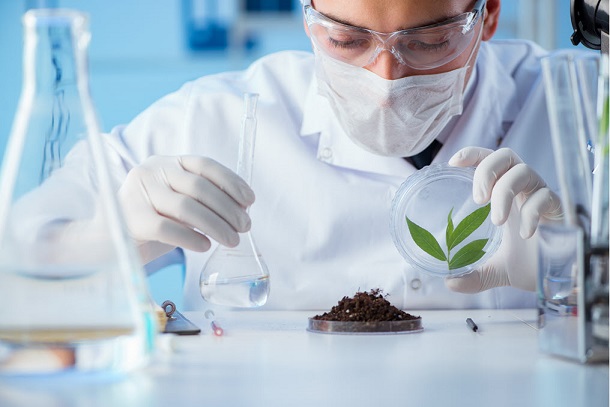CALL US
EMAIL US
SOIL TESTING

A soil test is important for several reasons: to optimize crop production, to protect the environment from contamination by runoff and leaching of excess fertilizers, to aid in the diagnosis of plant culture problems. Improve the nutritional balance of the growing media and to save money and conserve energy also plays major role in getting better output from Soil.
Following are the major reasons for soil testing:
1) Understand current soil condition. Fertile soils are necessary to grow healthy crops. To improve soil fertility, it needs to be measured first. Soil fertility is determined by the chemical, physical and biological properties of soil. Properties such as Nitrogen,Phosphorus and Potassium with all micronutrients are important. Chemical composition of soil plays major role in soil testing. This is what needs to be measured and why soil sampling is essential. Soil tests are used to determine the nutrient content and pH level of a soil. With this information the exact type and quantity of fertiliser that needs to be applied to improve soil fertility can be defined.
2) Effective soil fertility management With a proper soil fertility strategy, farmers can maximize the efficiency of nutrients and water use and improve their agricultural productivity. Soil testing is the first step towards proper soil fertility management. Soil testing gives valuable information and helps you improve your soil's health. We also have tie ups with various agriculture consultants to support technical services.
3) Minimise fertiliser expenditures Fertiliser are costly and it is waste of money if you use in excessive amount. You will not waste money on unnecessary fertilisers if the exact type and quantity of fertilisers your soil and crops need is known. Moreover, inorganic fertilisers in general and nutrients such as phosphorus and potassium are limited resources. Their prices are increasing over the years and because this trend is set to last it is clever to adapt now to the inevitable changes.
4) Exact need of fertilisation Applying fertiliser without knowing the actual nutrient needs of your soil might lead to over-fertilisation. By testing your soils and receiving fertiliser recommendations, you can avoid using an excessive amount of fertiliser. This is better for your crops and the environment. Fertiliser burn and leaves turning yellow is the outcome of over-fertilisation for crops. It might also result in nutrient leaching, water pollution and irreversible damages to the surrounding aquatic life.
5) Avoid soil degradation Soil degradation is a threat to every farmer. It is estimated that each year of fertile soil are lost due to erosion which is a result of unbalanced soil management. A proper soil management is guaranteed by soil tests followed by the application of the right fertilisers at the right moment. Besides avoiding risks of soil degradation, it is a more efficient and financially more interesting practice. Moreover, soil restoration is a difficult, costly and time-consuming process.
For more information call 9763050611 or send email on kulkarnilabfoodwater@gmail.com
